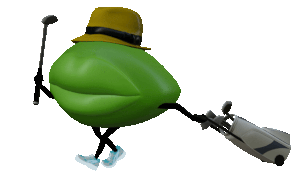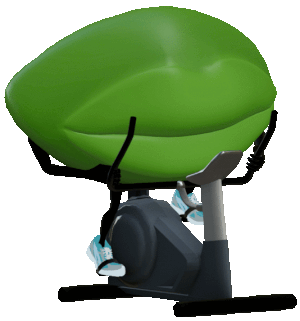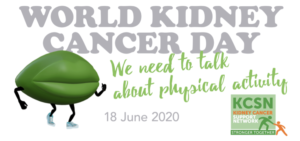World Kidney Cancer Day 2020
Physical activity can reduce your risk of getting kidney cancer by up to 22%. If you have kidney cancer physical activity aids treatment outcomes, reduces fatigue, relieves psychological problems and improves quality of life. Currently, three out of four kidney cancer patients don’t do even the recommended minimum physical activity. That’s why the theme for this year’s World Kidney Cancer Day on 18 June 2020 is: ‘We need to talk about physical activity’
We need to talk about physical activity
The following patient stories highlight the potential health benefits, both psychological and physical, from taking part in any kind of physical activity, such as a walk in the countryside, gardening or yoga and even Morris dancing!
 Hazel’s story
Hazel’s story
I’ve been really slack on exercise until the recent lockdown but Beth has been forcing me to walk to try and lose some weight and try and get a bit healthier. It’s been a real challenge, if I’m honest, as I started off not being able to walk very far at all! Now (with a few tantrums thrown in) I’m just about managing 5.5 km. I have to stop now and again and have to find walks with few uphills, but they have certainly been entertaining. We’ve enjoyed a few laughs, taken some great photos and had a 40 minute dilemma trying to escape from with cows with commando tactics! I’m so glad I have Beth pushing me, since if I hadn’t been walking in this good weather I would quite easily be mistaken for an umpa lumpa! After each walk I feel so much better and see some amazing places and not just a square TV!
Charlotte and Andy’s story
Our daily walk has become very important to us during lockdown, both physically and mentally. We also have a 3 1/2 month old baby, born just before lockdown and have been enjoying walking her in the buggy and making memories during these difficult times. Here is a photo of us walking our little girl, Ada, during lockdown in our local woods. Andy also loves gardening at the weekends, enjoying the low impact exercise, fresh air and the reward of seeing the results of his efforts at the end of the day and over the summer. Yoga is great exercise but is also very important for mental resilience and well-being. The great thing about yoga is that it can be as challenging as you’d like it to be, and it really is suitable for everyone.
 Sally’s story
Sally’s story
I love being outside. Exercising in the fresh air makes me physically stronger and also lifts my spirits. My daily walk always makes me feel happier and more positive. Longer hikes in the countryside present a fitness challenge and give me a great sense of pleasure and achievement. Daily walking and weekly Pilates classes have both been a crucial part of my recovery following my nephrectomy 4 years ago. Last year my husband and I walked 110km along the Camino de Santiago in northern Spain, raising money for KCSN as we went. The more exercise I do, the more positive and confident I feel. Sometimes it’s good to try something completely new. Last year I had a go at canoeing on the River Wye. It was so peaceful on the river and the wildlife was stunning. It was good fun and a really memorable day.
 Martin’s story
Martin’s story
I have been lucky enough to be able to largely continue normal activities most of the time I have been on sunitinib (targeted therapy). Since retiring a few years ago I am constantly active and enjoy being outdoors. I go for a walk most days with my wife along the harbour foreshore that we are lucky to live next to. I go for regular cycle rides also, but my favourite outdoor activity is sailing. I sail a racing dinghy with my son which is great exercise in fresh air and also mentally challenging. I also can go for a sail in Chichester Harbour from my home whenever I chose in a small single handed dinghy. It’s a great way to get away from it all! Lately due to lockdown I have been doing a lot of gardening of the agricultural type; levelling beds, re-laying slabs and planting trees and shrubs that were in pots. This is an amazing way of exercising (both aerobic and muscle strength) with something to show at the end of it. Culminating in filling a 1 tonne bag with surplus soil recently! I feel much stronger since embarking on this work!
 Lynne’s story
Lynne’s story
My main exercise – and something I’ve done most since diagnosis 14 years ago – is walking. It’s a bit of a cliche but it really does help mind, body and spirit. Nature soothes in way which little else does and this can apply to a park in a town as much as a footpath in the country. Since 2016 I’ve signed up for the 1000 Mile Challenge and aim to do 1000 miles of walks every year. I haven’t always made this but it’s fun trying. Five years after diagnosis I trekked the Inca Trail in Peru to Machu Picchu and have also walked Hadrian’s Wall and the Cotswolds Way. I should mention that before diagnosis I rarely walked so this was something new after diagnosis.
 Steve Pointon’s story
Steve Pointon’s story
Last year, I turned 40 and decided to undertake a challenge that is way out of my comfort zone. I needed to lose weight and get healthier to take advantage of a second chance of life, and did this by undertaking 40 days of consecutive exercise leading up to the day before my 40th birthday. During the 40 days, I did park runs, 50 length swimming sessions, 20 km bike rides, a physical training session each week, and general gym work outs. I have always been a stop and start exercise person. I had really got into decent shape leading up to my IL-2 treatment and that helped me so much physically to get through such a rough treatment and mentally knowing I could run and cycle that bit more made me realise I could take an extra dose of the treatment. So when I did the 40 for 40 challenge I could think back to IL-2 and I knew I had the inner strength, physically and mentally, to push through the tough days. I am aware of the link between weight and kidney cancer, but the mental aspect of exercising in whatever capacity you can cannot be underestimated.
 Debbie’s story
Debbie’s story
I’d always considered yoga to be a gentle exercise that I simply never had time for. That was prior to kidney cancer surgery when time stood still for several months whilst I recovered. Twelve months post surgery, ongoing back and abdominal pain led to a referral for physiotherapy that was to be life changing.
It was discovered that, following my nephrectomy I had developed a lop-sided gait. The pain coupled with a natural need to protect that vulnerable side meant I’d been leaning slightly to my left. The physiotherapist was excellent and gave me some simple exercises that would straighten me up and
alleviate the pain. They were basic yoga poses and I was soon able to practice each one unaided. The physio therefore recommended I look for a local yoga class so that I could continue my recuperation.
I am fortunate to live near to a yoga studio and enrolled in a beginner class. The results were phenomenal. Within a few months my posture was perfect and the pain had eased considerably. I have attended that beginner class ever since, six years in total. Within that time I discovered yoga nidra, the practice of yogic sleep which takes you into a deep meditation like no other. The benefits of that alone have been life affirming.
Despite trying various other yoga practices including Ashtanga (a physical more athletic form), Runners Yoga (focussing on the benefits for runners) and Vinyasa (where movements flow seamlessly without a break and poses are held longer) I never really progressed past Hatha, the beginners class. I’m not very supple and the surgery left some damage that unfortunately hasn’t repaired. However, I excelled at balancing which further aided my posture and therefore corrected back issues.
Kidney cancer introduced me to yoga which in turn led to running, cycling and swimming. Prior to my diagnosis I hadn’t done any of the aforementioned since school – never yoga. The benefits both physically and mentally have surpassed those that medication could give me. I am a strong advocate of yoga being used to aid surgery recovery in hospital. I received no physiotherapy on discharge and the result was a year of  pain. Yoga has eased that pain considerably and helped me accept that which I can’t change. On the yoga mat we are all equal and that in itself brings newfound confidence and peace of mind.
pain. Yoga has eased that pain considerably and helped me accept that which I can’t change. On the yoga mat we are all equal and that in itself brings newfound confidence and peace of mind.
Jon’s story
Jack’s story
Since my diagnosis of stage 3 kidney cancer in 2018, I took up running as a way to get fitter and lead a healthier lifestyle. Since then I’ve taken part in several organised runs and I’m now training for my first triathlon. I like having events to focus on and aim towards, it helps keep me motivated. Exercise is so important to me for my general fitness and also my mental health. I’m currently 2 years cancer free and feeling great! Since the cancellation of the London Triathlon I am aiming to do a ‘virtual’ triathlon instead, doing it all near home including outdoor swimming!
 Steve Goldsmith’s story
Steve Goldsmith’s story
I first saw Morris dancing in Fresher’s Week whilst a student at York and it took until my final year before I felt brave enough to join the local club – or side, as clubs are known in the Morris world – Ebor Morris. Over 40 years later, it’s still part of my life – coronavirus restrictions excepted. I was drawn to it by the sense of helping to maintain heritage and tradition. It is a form of exercise, but I see myself as going out to dance rather than to exercise. Generally, sides will meet each week to practice for a couple of hours. How often sides perform varies, and this can be a mix of local venues and gatherings around the country. My side, Wadard Morris, has made trips to Belgium and I know of another side that once was invited to dance in Brazil! This picture shows me and seven others performing Vandals of Hammerwich, a dance from Lichfield in Staffordshire, and was taken in 2017 in the village of Dobcross in the West Riding of Yorkshire (it featured in the film ‘Yanks’) during the annual Rushcart festival organised by the Saddleworth Morris Men. This is Cotswold Morris; other types of Morris dancing are available and your local side would be pleased to see you.
 Kevin’s story
Kevin’s story
Having a bad day? Get your running kit on and go for a run, you’ll feel energised!
 Steve Bailey’s story
Steve Bailey’s story
I was diagnosed in Autumn 2017 aged 43. I was a serving firefighter at the time. I went from someone who regularly cycled 100 miles a week travelling to work, carried out physical training on duty and obviously had a job that involved a fair amount of cardiovascular work. Overnight this ceased, due to the effects of kidney cancer and my treatment. After radiotherapy, sunitinib and cabozantinib, I decided I needed to resume some kind of fitness drive. I was lucky that in South Oxfordshire they run a programme where I can get a full membership for the gym, swimming and classes for £20 on a programme called Health Wise. I immediately noticed a difference. While on cabozantinib, I take treatment breaks every 3-4 weeks. I find exercise allows me to take my drug for longer periods, it helps push the toxins around my body and hugely improves my side effects. That include mouth ulcers, loss of appetite, bowel problems and dry skin. In June 2019 I took part in Blenheim Triathlon raising money for KCSN. The gym closed in March due to COVID-19 so I threw myself back into cycling. During lockdown, getting out most days really helped with my mental health. I find somedays I can only cycle 15 miles or so, whereas on others I can do 50/60 miles. It’s really that random.
The benefits of physical activity
If you were diagnosed with cancer a few years ago, you would have probably been told to rest and recuperate. In 2020, you are more likely to be told the opposite. Studies show being physically active can reduce your risk of kidney cancer by up to 22%. If you already have kidney cancer, even moderate physical activity can improve treatment outcomes by up to 15%, as well as reduce cancer-related fatigue and improve overall quality of life. And the benefits aren’t just physical. It can also reduce cancer-related anxiety and depression and improve general wellbeing and quality of life. A recent IKCC study showed that nearly all (96%) kidney cancer patients worldwide experienced psychological problems, therefore 30 minutes exercise three times a week can be life changing.
being physically active can reduce your risk of kidney cancer by up to 22%. If you already have kidney cancer, even moderate physical activity can improve treatment outcomes by up to 15%, as well as reduce cancer-related fatigue and improve overall quality of life. And the benefits aren’t just physical. It can also reduce cancer-related anxiety and depression and improve general wellbeing and quality of life. A recent IKCC study showed that nearly all (96%) kidney cancer patients worldwide experienced psychological problems, therefore 30 minutes exercise three times a week can be life changing.

“The evidence supporting the benefits of physical activity is growing every day,” commented International Kidney Cancer Coalition (IKCC) Chair, Dr Rachel Giles. “But currently three out of four kidney cancer patients worldwide aren’t doing even the recommended minimum, with half doing no physical activity at all”.
The problem is, three out of four kidney cancer patients currently aren’t doing enough physical activity. That’s why this year’s theme is ‘We need to talk about physical activity’, to help raise awareness of how even small amounts of gentle physical activity can help prevent kidney cancer and transform the lives of kidney cancer patients worldwide.
Examples of physical activity for cancer patients
Whatever your age, whatever your stage, being as physically active as your condition allows and your body will tolerate can bring far-reaching benefits. Even just a few minutes here and there will make a difference. If your clinician hasn’t suggested a physical activity plan to you, suggest it to them on your next visit.
Examples of some physical activity you could do include going for a walk in your local park, virtual keep fit classes, yoga, Pilates, cycling, gardening, home maintenance and dancing. Whatever you do, be sure to practice social distancing guidelines and follow the advice of the NHS and Government regarding the COVID-19 pandemic.
 Get Active, Sit Less! guide
Get Active, Sit Less! guide
Starting a physical activity plan is never easy and having cancer doesn’t make it anyeasier. This FREE guide can help put you on the road to a better quality of life. Visit the WORLD KIDNEY CANCER DAY website to watch the Dr Trinh video and download a copy of the FREE physical activity guide here:


Get active, sit less
In this video, Dr Steve Bromage, consultant urological surgeon, and patients Lynne Ewart and Steve Pointon talk about the physical and psychological benefits of physical activity for kidney cancer patients.

Physical activity: The patient perspective
Julia Martin is a 17-year kidney cancer survivor. Julie is hugely grateful for the oncology, neurology and orthopaedic care she has received during her journey, which has been outstanding. Throughout this time, apart from when an inpatient, she has kept extremely well. Her mobility continues to be severely restricted but manageable and life is good. Fortunately, she is not a worrier by nature and feels worrying does not change outcomes. She has continued to work full time throughout, retiring aged 67, three years ago. Currently the disease is stable and hopefully will remain so. Listen to how physical activity has helped her cope with her kidney cancer.

World Kidney Cancer Day 2020 physical activity video
The World Kidney Cancer Day 2020 campaign was led by Dr Linda Trinh, a world leader on physical activity and cancer from the University of Toronto in Canada. In the following video, Dr Trinh talks about how physical activity can make a huge difference to both cancer prevention and improving treatment outcomes and quality of life for those who have it.






